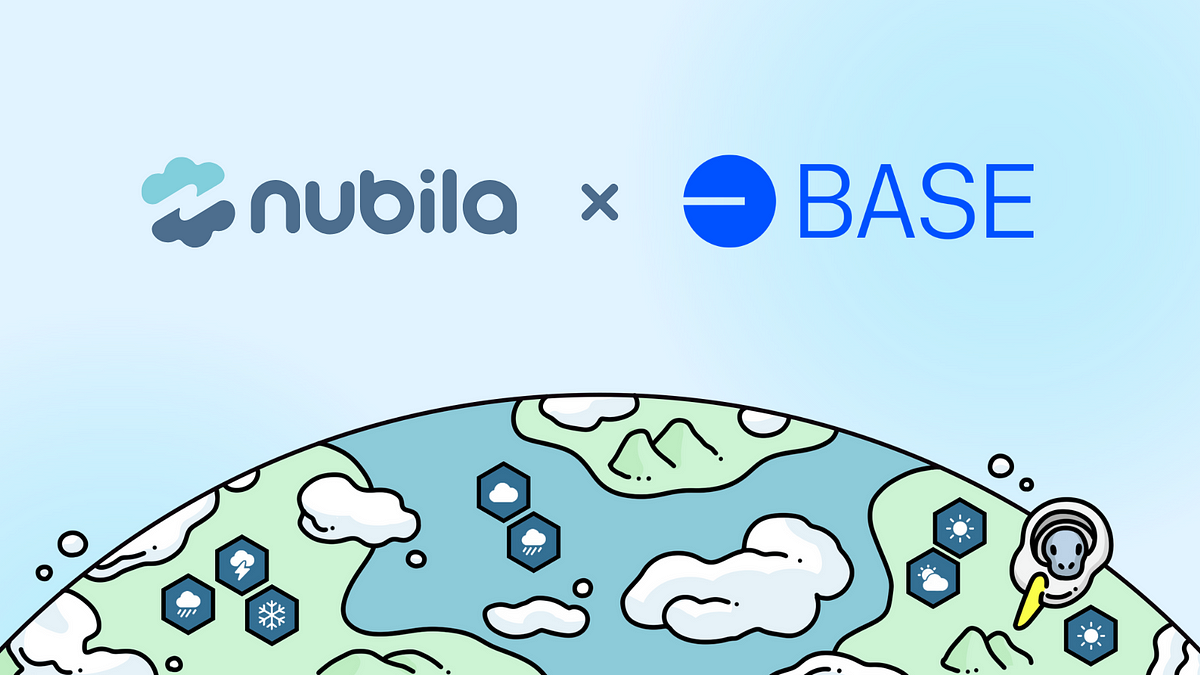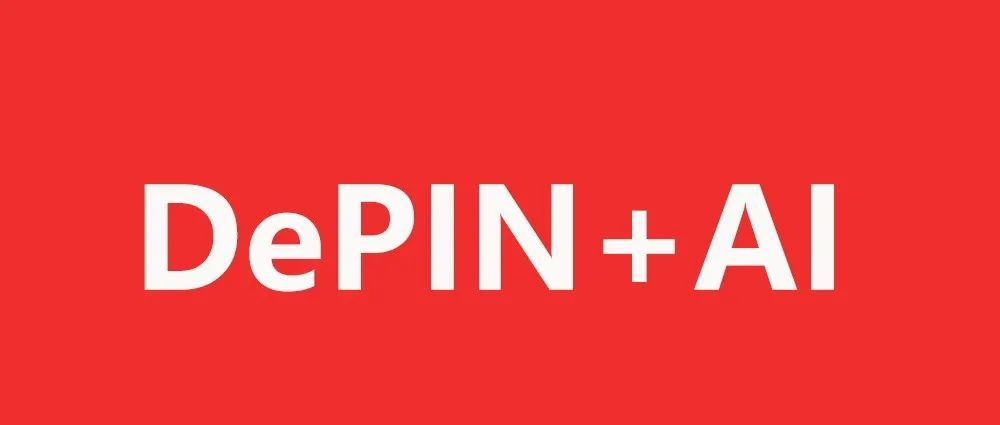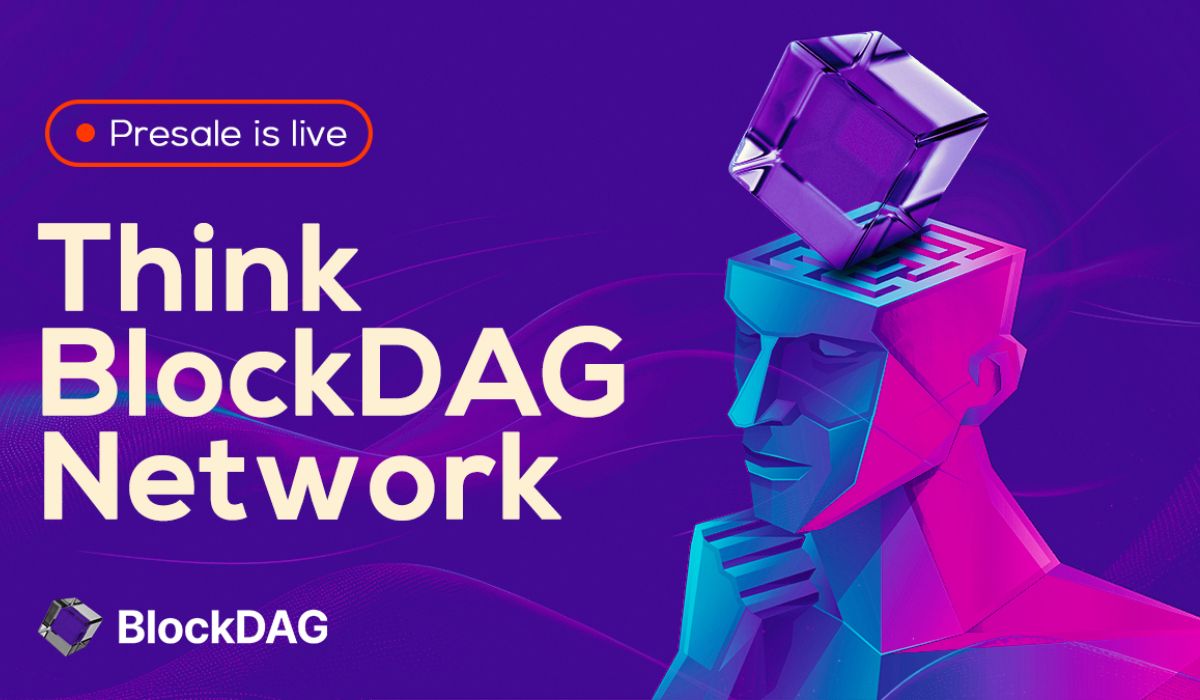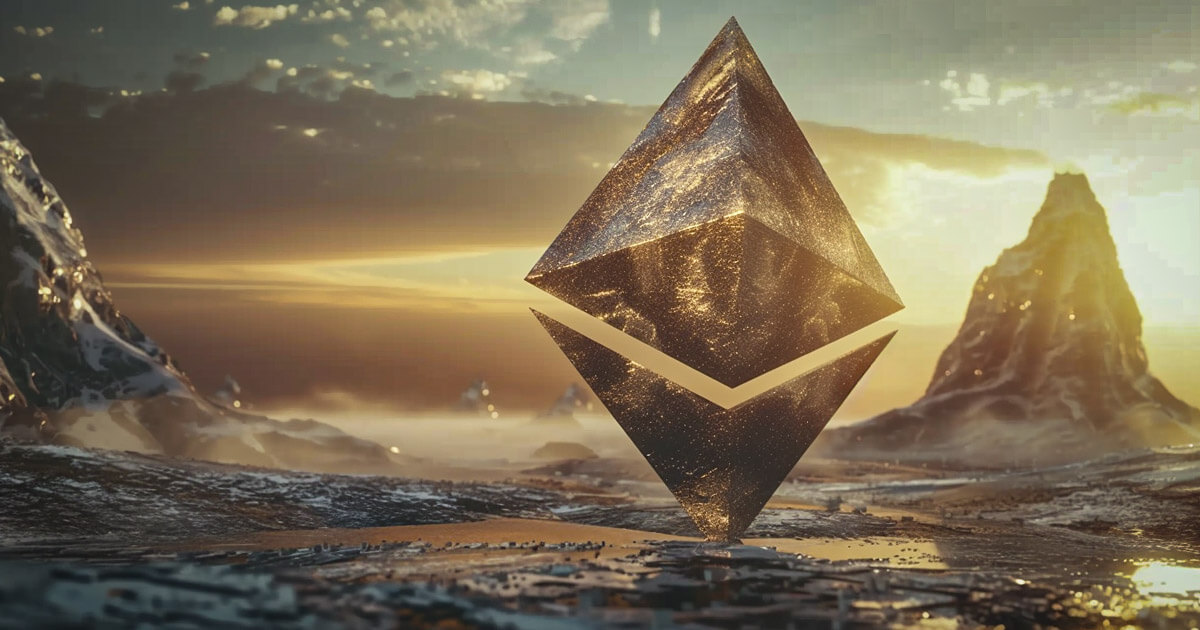Latest Ethereum News

3 months ago
MVL to Launch Mainnet on Base Layer 3 Network and Expand Ecosystem into the U.S.
MVL, a pioneering blockchain mobility company, has announced a significant collaboration with Base chain to launch its mainnet on Base's recent layer 3 network. This development marks a crucial evolution in MVL's ecosystem, positioning it as a leader in blockchain-powered mobility solutions. MVL has been dedicated to creating a mobility ecosystem based on fairness and transparency, but scaling challenges have hindered its growth. Over the past six years, MVL has focused on building real-world infrastructure and ensuring utility before this mainnet launch. Its ecosystem now includes innovative services such as TADA, ONiON Mobility, DePIN, and Musubi, all designed to enhance user experience and operational efficiency.
The launch of MVL's mainnet on Base's Layer 3 network is a strategic decision that promises to enhance the scalability and efficiency of its services. Base's network offers the security, low fees, and scalability necessary for MVL's expanding ecosystem. By compressing transactions into batches and recording them on the Ethereum mainnet, MVL can efficiently handle large volumes of data and transactions. This integration will also enhance the utility of MVL's native token, driving adoption and expanding its role within the ecosystem. The collaboration with Basechain is expected to unify MVL's services, which were previously separate, into a cohesive and scalable platform.
In addition to the mainnet launch, MVL has signed a Memorandum of Understanding with CO-OP, a community-owned ride-sharing platform, to expand its ecosystem into the United States, starting with Colorado. This partnership aligns with MVL's mission to promote fair fare distribution among drivers, mirroring TADA's zero-commission model. By developing an application system for mobility service providers, MVL aims to foster a more decentralized mobility network, offering fairer fares and improved services compared to traditional platforms. This strategic move not only enhances MVL's offerings but also sets a new standard for driver-focused mobility solutions in the U.S.

3 months ago
Fluence Launches DePIN Pledge to Promote Decentralized Infrastructure
Fluence has launched the DePIN Pledge, urging cryptocurrency firms and industry players to commit to utilizing decentralized physical infrastructure network solutions. This initiative is supported by prominent organizations such as IoTeX, Polygon, Helium, and Consensys. Fluence aims to encourage projects to publicly embrace decentralized infrastructure, fostering more transparent and resilient ecosystems. As the web3 and cryptocurrency landscape evolves, the importance of maintaining decentralization has become increasingly critical, especially in light of the growing reliance on centralized infrastructure by many projects.
The DePIN Pledge allows firms that commit to it to be listed in a public directory on the DePIN Pledge website, enabling users and traders to identify and support companies that prioritize decentralization. Additionally, participating projects will receive a manifesto and a DePIN Pledge NFT, which is auditable on the Ethereum blockchain. This NFT serves as a symbol of their commitment to decentralization and can be showcased across various platforms and social media channels. Major crypto firms, including Infura, Outlier Ventures, and Blockscout, have also backed this initiative, highlighting a collective effort towards a decentralized future.
Tom Trowbridge, Co-Founder & CEO of Fluence, expressed enthusiasm for the pledge, noting that it marks the beginning of DePIN adoption. He anticipates a diverse range of DePIN products and services emerging in the coming years. Clemens Wan, global solutions architect at Consensys, echoed this sentiment, emphasizing the need for decentralized infrastructure that aligns with the core values of web3. The DePIN Pledge represents a significant step towards ensuring that the foundational services of the industry reflect the principles of decentralization, ultimately realizing the full promise of web3.

3 months ago
DIMO to Showcase Open Vehicle Connectivity at Day Of DePIN Event
DIMO is set to participate in the upcoming Day Of DePIN event on February 25th in Denver, which is organized by DePHY and De Charge. This event will showcase DIMO's innovative open vehicle connectivity platform, designed to empower car owners by enabling them to connect their vehicles, manage their data, and potentially monetize this information. The platform emphasizes transparency and trust, utilizing open-source components to bolster confidence among users and developers in connected services and devices.
Operating on the Ethereum Virtual Machine, DIMO integrates blockchain technology, cryptography, and real-world hardware to create blockchain-based identities for users and vehicles through NFTs and smart contracts. By incorporating licensed hardware devices, such as the DIMO Data Miner, along with approved software APIs, the platform ensures that telemetry data is securely associated with specific vehicles and trips. This allows major companies to issue verifiable blockchain-based credentials while giving users control over their data, enabling them to decide what information to share and with whom.
The DIMO token is central to the ecosystem, serving as both a medium of exchange and an incentive mechanism. Vehicle owners can earn DIMO tokens by sharing their data or utilizing specific services. This tokenized model not only encourages active participation from users but also motivates developers and stakeholders to innovate, develop cost-effective solutions, and create new applications within the vehicle data landscape. The DIMO platform is poised to revolutionize how vehicle data is managed and utilized, fostering a more collaborative and efficient automotive ecosystem.

3 months ago
Shifting Dynamics in the Cryptocurrency Market: A Focus on Memecoins and Established Tokens
In recent days, the cryptocurrency market has witnessed a notable shift in investor interest, particularly towards specific coins such as Libra ($LIBRA), Solana ($SOL), Melania ($MELANIA), and Ethereum ($ETH). While Bitcoin and Ethereum continue to dominate the market, new contenders are capturing attention. The controversy surrounding Libra has intensified following Argentine President Javier Milei's endorsement, which sparked a trading frenzy. However, this endorsement has also led to legal challenges, with accusations of fraud against Milei for misleading investors about the legitimacy of the currency. The fallout from Libra's volatility has raised concerns about the risks associated with investing in memecoins and the implications for the Argentine economy.
Solana has also found itself in the spotlight due to its association with memecoins like Libra. Traders are expressing unease about the speculative nature of Solana-based tokens, questioning whether Solana can maintain its reputation as a serious platform for smart contracts and decentralized applications. As Ethereum continues to thrive with its decentralized finance (DeFi) ecosystem and NFT projects, some investors are shifting their focus towards Ethereum, viewing it as a more stable long-term investment compared to the speculative environment surrounding Solana.
Additionally, Melania ($MELANIA) has come under scrutiny due to its ties to the Libra controversy, with allegations of insider trading and coordinated scams surfacing. Meanwhile, Fort Knox ($FORT) and Storj ($STORJ) are gaining traction among investors, with Fort Knox attracting attention for its potential gold-backed assets and Storj being recognized for its decentralized cloud storage capabilities. As discussions around these coins evolve, the cryptocurrency market remains a landscape of volatility, requiring investors to approach with caution and conduct thorough research before making investment decisions.

4 months ago
Nubila X Base: Transforming Real-World Data with Machine-AI
Nubila X Base: Transforming Real-World Data with Machine-AI
Nubila has received a grant from Base, an Ethereum Layer 2 solution, to enhance its position as a leading real-world data oracle. This collaboration aims to leverage MachineFi and Machine-AI to revolutionize autonomous systems and decentralized economies. By bridging physical infrastructure with actionable insights, Nubila is empowering industries to innovate faster and AI systems to make smarter decisions.
With Base's support, Nubila is expanding its global network of weather stations, enhancing AI-driven insights, and promoting transparent data access. This partnership signifies a significant advancement in the era of Machine-AI and DePIN, enabling intelligent automation, decentralized decision-making, and sustainable growth.

4 months ago
Bitcoin Hits New All-Time High Amid Anticipation of Pro-Crypto Policies
Bitcoin (BTC) has reached a new all-time high (ATH) of $109,350 on January 20, 2025, driven by a surge in cryptocurrency markets ahead of Donald Trump's inauguration as the 47th President of the United States. The price increase, which saw BTC jump over 6% in early trading, comes amid growing expectations of pro-crypto policies from the incoming administration. Trump has indicated support for digital assets, including proposals for a strategic national Bitcoin reserve, which has fueled market enthusiasm. Tom Trowbridge, Co-Founder and CEO of Fluence, noted that the appointment of David Sacks as the 'crypto czar' signals a significant shift towards a supportive regulatory environment for cryptocurrencies.
The broader cryptocurrency market has also benefited from Bitcoin's rally, with Ethereum rising 3.5% and XRP increasing by 2%. Chainlink has seen the most significant gains, climbing 15%. Despite reaching a new ATH, Bitcoin's price has faced resistance at previous highs, with key support levels identified at $104,000, $102,400, and $99,500. Analysts suggest that a drop below these levels could indicate a deeper correction, while movements above them may present buying opportunities.
In addition to Bitcoin's performance, the newly launched TRUMP token has made headlines, peaking above $70 before experiencing a correction. The token's launch was announced by Trump himself, further energizing the market. With Trump's pro-crypto stance, experts predict ambitious price targets for Bitcoin in 2025, ranging from $175,000 to $250,000, driven by factors such as institutional adoption and the upcoming halving event. As the cryptocurrency landscape evolves, the influence of political developments on market dynamics will continue to be closely monitored.

5 months ago
Exploring DePIN: The Intersection of Blockchain and Real-World Applications
In a recent podcast, Colin Wu, founder of WuSay, and EO Hao, CEO of Future Money Group, engaged in a deep discussion about the evolution of Decentralized Physical Infrastructure Networks (DePIN) and its integration with real-world applications. They explored the historical context of DePIN, its investment rationale, and its synergy with hardware and AI. The conversation highlighted the influence of ecosystems like Ethereum and Solana on DePIN, as well as the impact of varying cultural backgrounds among participants in shaping the future of this domain. They also touched on the evolving regulatory landscape in the U.S. and its potential to foster Web3 and DePIN, alongside opportunities for real-world assets (RWA) and hardware mining to converge with blockchain technology.
EO Hao shared his journey into the cryptocurrency space, starting from traditional finance and moving into fintech before establishing Future Money Group. He emphasized the importance of real-world applications, particularly in DePIN and RWA, which have been the focus of their investments for several years. The discussion also delved into the significance of Solana's ecosystem in promoting DePIN, with EO noting that their early investment in Solana was pivotal in their understanding of the DePIN concept. Both speakers acknowledged the historical roots of DePIN, tracing back to Bitcoin and earlier projects like Helium and Filecoin, while also recognizing the current trend toward AI-driven applications.
The podcast concluded with a discussion on the future of DePIN and its potential to reshape the cryptocurrency landscape. EO expressed optimism about the integration of AI and blockchain, particularly in areas like computing power markets and data collection. He noted that the U.S. regulatory environment is becoming more favorable for crypto and DePIN projects, which could lead to greater public participation and practical applications. As the industry evolves, the focus is shifting towards projects that offer tangible benefits to society, moving away from speculative tendencies and towards sustainable growth in the blockchain ecosystem.

5 months ago
Predictions for the Future of Crypto ETFs in 2025
The cryptocurrency market is experiencing a significant surge in activity, particularly with the introduction of Bitcoin and Ethereum Spot ETFs. Major financial players like BlackRock, VanEck, and Fidelity are injecting substantial liquidity into the market, which has shown resilience despite challenges faced in 2024. Nate Geraci, co-founder of the ETF Store and the ETF Institute, emphasizes the growing interest in digital assets and predicts a bright future for crypto ETFs. He highlights that these financial products provide investors with easier access to complex markets, enhancing their investment portfolios.
As we look ahead to 2025, Geraci forecasts a positive trajectory for crypto ETFs, driven by shifting political trends and potential leadership changes at the SEC. With pro-crypto figures like Paul Atkins likely to succeed Gary Gensler, the landscape for crypto ETFs could become more favorable. Geraci anticipates the launch of an Ethereum Spot ETF that includes staking, which could reignite interest in Ethereum. Additionally, he predicts that crypto index ETFs from Bitwise and Grayscale will gain approval, expanding the range of financial products available in the sector.
The integration of traditional finance with decentralized finance is also noteworthy, as seen with the emergence of crypto indices like the Meme Index, catering to various investor profiles. Geraci suggests that Vanguard may reconsider its stance on crypto ETFs in 2025, potentially capitalizing on market opportunities. Furthermore, he predicts the approval of Solana and XRP Spot ETFs, fueled by optimism surrounding regulatory developments. As the regulatory environment evolves, particularly with Donald Trump’s anticipated presidency, the U.S. could solidify its position as a global cryptocurrency hub, making 2025 a pivotal year for crypto ETFs.

5 months ago
BlockDAG and Ethereum: Key Developments in the Cryptocurrency Market
The cryptocurrency market is currently witnessing significant developments, particularly with BlockDAG and Ethereum making headlines for distinct reasons. BlockDAG has successfully raised over $178.5 million in its presale, attracting more than 170,000 holders. The excitement surrounding this project is palpable, especially with the introduction of the LAUNCH300 promotion, which allows participants to triple their BDAG holdings instantly by applying a simple code during purchase. This initiative not only simplifies portfolio growth but also fosters a sense of community and trust among its supporters, indicating that BlockDAG is committed to building more than just a blockchain; it aims to create a supportive ecosystem.
On the other hand, Ethereum is projected to potentially reach $12,000 by 2025, driven by technological advancements and favorable political developments. The upcoming Pectra upgrade, expected in Q1 2025, is designed to enhance Ethereum's scalability and reduce transaction bottlenecks, which could solidify its position in decentralized finance (DeFi) and smart contract applications. Additionally, the anticipated crypto-friendly policies from the incoming administration may provide the regulatory clarity needed to boost institutional interest in Ethereum. The options market reflects this optimism, with a notable increase in long-term holders, rising from 59% to 75% over the past year, indicating growing confidence in ETH's future.
In conclusion, the successes of BlockDAG's presale and the promising outlook for Ethereum's Pectra upgrade highlight the dynamic nature of the cryptocurrency landscape. While BlockDAG focuses on community engagement through initiatives like LAUNCH300, Ethereum's technological advancements and supportive political climate position it as a key player in the evolving DeFi space. However, both projects must navigate the inherent risks of the crypto market, including competition from alternative blockchains and the volatility that can lead to significant financial losses.

5 months ago
Phala Network Launches Ethereum Layer-2 Rollup to Enhance Scalability
Phala Network, a notable parachain within the Polkadot ecosystem, has recently launched its innovative layer-2 rollup protocol on the Ethereum blockchain, named Op-Succinct. This new development aims to enhance Ethereum's scalability and efficiency through advanced cryptographic solutions. According to a statement released on January 8, 2025, Phala Network's collaboration with Succinct Labs and Conduit has resulted in the creation of the first-ever Op-Succinct Layer 2 rollup on Ethereum, which integrates both optimistic and zero-knowledge (ZK) proofs. This integration is designed to provide faster transaction finality, lower operational costs, and improved security for users on the Ethereum network.
The launch of this layer-2 solution aligns with Phala's broader vision of advancing cryptographic computing. By utilizing Trusted Execution Environment (TEE) technology, Phala Network enables developers to deploy secure smart contracts, particularly beneficial for AI-driven decentralized applications. Additionally, the rollup introduces Dstack functions that facilitate the transition from traditional Web2 systems to blockchain-based Web3 environments. This capability is particularly significant as it supports decentralized AI applications, including autonomous agents, while simultaneously enhancing blockchain security through sophisticated cryptographic measures.
Phala's expansion into Ethereum reflects a growing trend towards layer-2 solutions within the Ethereum ecosystem. Recent data from L2beat indicates a substantial increase in the adoption of rollups, with various entities, including Kraken and Deutsche Bank, exploring the development of layer-2 infrastructures. However, this rapid growth raises concerns about potential fragmentation of liquidity pools and market inefficiencies. Despite these challenges, advocates for niche-specific blockchains argue that they can optimize technical stacks and foster dedicated communities, ultimately creating sustainable revenue streams through tailored solutions and reduced transaction fees.
Signup for latest DePIN news and updates